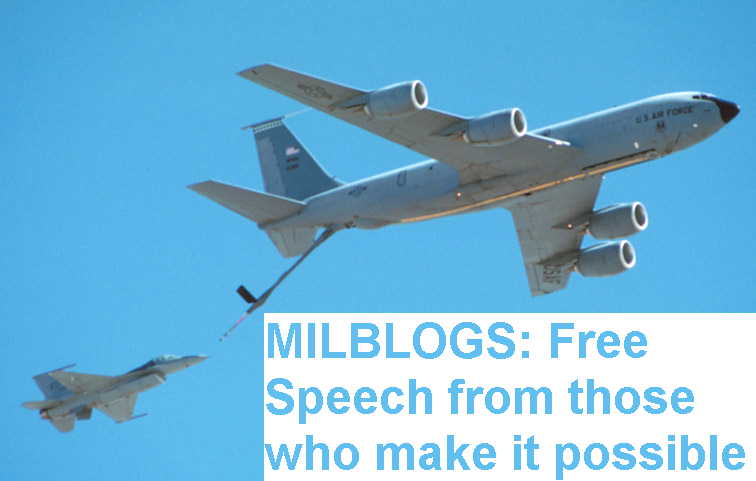June 23, 2004
What do we need to do to win in Iraq?
Actually, that's a trick question; the main problem in Iraq is the insurgency, and any military action we take causes as many new problems as it resolves. Furthermore, victory cannot be measured in our achievements, but in what the Iraqis do. We can't stop the violence in our own capital city of Washington DC, how can we stop the violence in Iraq? Thus, our "victory" can only be defined as being able to withdraw all foreign military forces from Iraq with the confidence that it is free, democratic, stable, and possesses enough strength to remain so.
Afghanistan, by comparison, is going quite well. The final victory hasn't been achieved there, either, as many of the warlords still retain their personal militias and are still jockeying for power underneath Karzai, and would displace or replace him with a puppet if they could. But all in all, Afghanistan is much farther down the road to stability and autonomy than is Iraq, and seemingly the gap is larger than the 18 month difference in the initiation of operations in each theater.
Why does Iraq seem to lag behind? Why has Afghanistan been so successful? What needs to happen for Iraq to catch up?
Initially, it seemed there were more similarities than differences. Both nations were suffering under brutal oppressive regimes with strong ties to international terrorist organizations. Both nations had ethnically-diverse populations that should have strong incentives to cooperate in both the battle and the establishment of a democratic government afterwards. We had already selected politically-adept ex-patriots to head the transitional government in each nation until true elections could be carried out.
Unfortunately, it is the differences that have made the biggest difference. The Afghanistan militias were experienced fighters, never fully conquered by the Taliban, and both sides were veterans or trained by veterans of the resistance that drove the USSR out after a decade of warfare. After superior US military technology, training, discipline, and firepower reduced the number and capabilities of the Taliban military, the Afghani warlord militias were able to first defeat the Taliban, then reorganize into a force capable of harrying the Taliban remnants and dealing with pockets of holdouts whenever engaged. In contrast, most Iraqis have experienced decades of oppression in which any person who stands out or rises up was brutally put down, and their relatives punished and tortured. We have spent one year training the Iraqis, but in the most recent crisis against Muqtada al-Sadr's militia, most of the police quit at the first sign of trouble. General Eaton, the officer responsible for training the Iraqi forces responsible for security (both police and military), seems to understand the mistakes he made and is taking steps to correct the problem. Specifically, we need to ensure the Iraqis realize they are fighting for their own country, not for us. It is no longer our fight, and they can no longer stand by and remain uninvolved. I'm sure that many of the police lacked confidence in the professionalism of themselves and their compatriots; thus, when faced with an armed uprising, worries over what would happen to their families if they died were more important than fulfilling their professional obligation. We have reorganized both training and the chain of command for the Iraqi forces. Stability of the government should help reassure them that if they fall in defense of the fledgeling nation, their family will be cared for.
It seems we also were extremely lucky in choosing Hamid Karzai for Afghanistan, and not so lucky with Ahmed Chalabi. Karzai has proven to be an able politicician, playing warlords off against each other and increasing their commitment to the new government with coveted positions in the government. He has made some mistakes, but has always recovered; at times, the warlords have considered trying to replace him with a more tractable puppet, or displacing him with themselves, but Karzai always manages to sidestep such challenges with timely appointments and shifting alliances. Through it all, the people have been impressed by the professionalism of the new Afghan National Army in comparison to the Afghan Militia Forces (regional units comprised largely of the warlords personal armies) and are growing more committed to a strong central government to reduce the day-to-day control the warlords currently possess over the citizens in their region.
Chalabi, on the other hand, had no natural constituency in Iraq and was not well-liked. The Grand Ayatollah Sistani had more direct power over the people, and Chalabi deferred to him. Unfortunately, Sistani had no desire to oversee the transition or maintain stability, other than trying to ensure that his Shia populace obtained the bulk of political power through proportional representation. It's not that Sistani has been an obstacle, merely that he feels his role is limited to that of a religious leader ensuring the fortunes of his followers within a democratic Iraq rather than actively trying to bring about stability in the first place. It is important to note that the Muslim faith is established on the idea of a religious "marketplace of ideas", in which religious leaders gain power only through their ability to sway people to agree and follow their personal vision. There is no way for an Islamic religious leader to "ex-communicate" any Muslim who makes even a pretense of following the Five Pillars of Islam. This is why the Grand Ayatollah feels he cannot order other religious leaders to do anything, whether to stop preaching sermons against the coalition or to encourage them to support the US or transitional government. This is why he didn't do much to stop Muqtada al-Sadr's uprising, other than attempting to counsel him personally. The most any religious leader can really do is issue a religious edict and hope his wisdom and argument are persuasive. In my opinion, the people of Iraq question the legitimacy of an appointed leader like transitional government Prime Minister Allawi enough that this problem won't be resolved until we have a free, fair, and transparent election that results in a government with a clear mandate.
In conclusion, we will win in Iraq when we successfully establish a professional military and police force that is committed to the nation's well-being and survival, and when we have a government that enjoys a firm mandate of the people. Until that time, Iraqi citizens who see their security forces too afraid to fight will be too afraid themselves to help rid themselves of the insurgents and foreign fighters who use the questions of legitimacy as a pretext to continue killing Iraqis.
 |

|
Prev | List | Random | Next Powered by RingSurf! |

Aphorisms (43)
Aung San Suu Kyi (4)
Blogging (213)
Car Issues (47)
Cat Blogging (6)
Catch-All (1)
China/Taiwan (65)
For Jeremy Gilby (10)
Fun With News Headlines (13)
Gun Issues (23)
GWOM (46)
GWOT (131)
Humor (76)
Jagged Alliance (11)
Kansas City Chiefs (106)
Kidblogging (20)
Liberal Democrats Are on the Losing Side of History (10)
Link O' Admiration (168)
Media Distortions (88)
Meme Stolen from Jeff G. (20)
Militaria (24)
Montana, My Home (1)
Music/Guitar (53)
New Thinking (18)
News of the Lowest Common Denominator (1)
Parenting/Leadership 101 (8)
Politics As Usual (324)
Puns (23)
Quotes You Can Steal (42)
Rhetorical Questions (27)
Snark (14)
Snarky Self-Deprecation (14)
Social Issues (268)
Spiritual/Theology (5)
Stuff Important to Me (171)
The Association of Military Linguists (1)
The Brain Fertilizer Way (52)
UK Stupidity (4)
Writing (23)
August 2008 (15)
July 2008 (13)
June 2008 (4)
May 2008 (17)
April 2008 (23)
March 2008 (57)
February 2008 (45)
January 2008 (39)
December 2007 (8)
November 2007 (13)
October 2007 (5)
September 2007 (33)
August 2007 (82)
July 2007 (44)
June 2007 (31)
May 2007 (3)
April 2007 (16)
March 2007 (7)
December 2006 (9)
November 2006 (14)
August 2005 (13)
July 2005 (58)
June 2005 (97)
May 2005 (41)
April 2005 (100)
March 2005 (135)
February 2005 (114)
January 2005 (77)
December 2004 (143)
November 2004 (151)
October 2004 (92)
September 2004 (113)
August 2004 (91)
July 2004 (145)
June 2004 (121)
May 2004 (123)
April 2004 (83)
In No Particular Order
The informed Reader
Kevin Miles
Hot Air
Future Pundit
mtpolitics.net
Michelle Malkin
Resurrection Song
The Real Dave Whiskey in My Sippy Cup
The Politburo Diktat
Ipse Dixit
Kevin I (blogoSFERICS)
Protein Wisdom
The White Peril
The Conspiracy
Slate (mainly for Kausfiles)
Kevin II (Wizbang)
Mudville Gazette
Blame Bush
Wuzzadem
The Horse's Mouth
Sharp as a Marble
Q and O
Ace O' Spades
Wadcutter
Dawn's Early Light
Seven Castles
Shenzhenren
EastSouthWestNorth Blog
The Roost
IMAO
Jeremy Gilby
Honda Fan Site
Amazon's Auto Blog
The Truth About Cars
Cox and Forkum
Chris's Invincible Super Blog!
Caption This!
Right Wing Sparkle
Blogblivion
Captain's Quarters
Iowa Hawk
Llama Butchers
Topic Drift
Witting Shire
Cool Tools 4 Men
Michael Williams
Industrial Blog
INDC Journal
Rosemarie, the Queen of All Evil
Sand in the Gears
La Shawn Barber
Dean's World
Sine Qua Non
Balloon Juice
Absinthe & Cookies
Scrappleface
Cut on the Bias
Spare Change
De Doc
Healing Iraq
The Mesopotamian
DC Thornton
Jane Galt
Iraq Now
Viking Pundit
Aimless Forest
Wince and Nod
Freedom Blog
Left and Right
Weekend Pundit
Baby Troll
Jana
I Am Always Right
Snug Harbor
King of Fools
Suburban Sundries Shack
Boy From Troy
Blogs of War
Speed of Thought
Hubs and Spokes
Mass Backwards
David
Evolution 3.0
Unravelled
Perry on Politics
Yorkie Blog
Aardvark!
Presto Pundit
North Shore Journal
Diogenes Corner
The New American Revolution
Acorns From An Okie
After Abortion
TMMKKT22
RAW 360
Anywhere But Here
I Was Thinking
| Pagerank |
| Sun | Mon | Tue | Wed | Thu | Fri | Sat |
|---|---|---|---|---|---|---|
| 1 | 2 | 3 | ||||
| 4 | 5 | 6 | 7 | 8 | 9 | 10 |
| 11 | 12 | 13 | 14 | 15 | 16 | 17 |
| 18 | 19 | 20 | 21 | 22 | 23 | 24 |
| 25 | 26 | 27 | 28 | 29 | 30 | 31 |
(Use 'em to prove me wrong...I dare ya)
News Feed Online
Liberal Celebrity Quotes
Drudge
NRO
Strategic Forecast
The Most Trusted Name In News
Gun Broker
Homestar Runner
World Builder Projects
Iraq Casualty Count
The Guys Get Shirts
Bureau of Labor Statistics
Badger?
Lapland
A Secular Franciscan Life
An Offering of Myself to the World
Better Living Through Blogging
Big Skies
Big Sky Dave
billingsblog
Brain Fertilizer
Brain Rain
Brian Schweitzer Campaign Blog
City Lights
Front Burner Blog
Gates of the Mountains
Glenn Ferren
Ground Plums and Gun Smoke
Jared Knowles
John Clayton
Mental Wanderings
Mike Erickson
Miss Bonkrood
mtpolitics.net
No Girl Friday
Not Geniuses (Matt Singer)
Para-Bellum.net
Revolving Duck
Sarpy Sam
Scrambled legs and achin'
T.L. Hines
The Monkey Cage
Watermark
Wulfgar!

People's Republic of Seabrook
SKBubba
Opinions You Should Have
Frank at Bloggram
Democrat Underground
Intel Dump

Site Hosted by
MuNuviana

MuNu Site Tweaked
by HammerHead
Syndicate this site (XML)
Powered by
Movable Type 2.64

